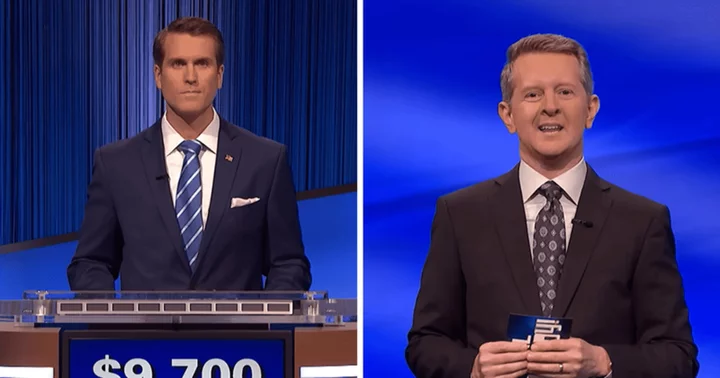CULVER CITY, CALIFORNIA: 'Jeopardy!' is not exactly lenient with its rules and policies, but this season saw a lot of inconsistencies when it came to the way certain mistakes committed by contestants were overlooked while others face action. An instance of the latter came to the fore in a recent episode.
Ken Jennings ruled a former 'Jeopardy!' champ's answer as incorrect due to a simple grammatical mistake. It is unclear on what grounds a contestant's answer can be declared incorrect due to a simple grammatical mistake.
Taylor Clagett loses $2,000 over minor mistake
Clagett was a two-day champ and won big during his stint on the show. While he was close to this 'Musical Works' clue's answer, he lost $2,000 because of a strict ruling. He ended up losing his winning streak in this episode to Julie Sisson.
The clue was, "Each of the 10 movements of this Mussorgsky work represents a piece of art on display, created by a late friend." The correct answer was "Pictures at The Exhibition." Clagett responded with, "What is Pictures at an Exhibition?" Jennings pronounced the answer as incorrect and neither of the other two contestants buzzed in with a guess.
Was Taylor Clagett's answer correct?
The ruling of this answer falls into one of those ambiguous areas of 'Jeopardy!' where the judges' decision does not exactly make sense. It is important to note here that several answers in previous episodes of the same season have had major incorrect elements to the point where some contestants only spoke aloud half of the correct answer and still managed to score some dollars. One of the reasons why this particular response was so harshly ruled could be the amount of prize money, as $2,000 could easily make or break a contestant on 'Jeopardy!' and giving the correct response can make one's score untouchable during the Final Jeopardy round.
However, it is also important to know that the title of the Mussorgsky work often switches between the usage of the 'an' and 'the' and was therefore remembered differently by most people. It was also the case that the article should not be central to the answer itself as the original language it was composed in was French and later in Russian, both languages which do not use 'the' in the title. It can be said that it was a mistake on the part of judges that Clagett ended up losing two grand, setting him $4,000 back than what he should have actually scored.









